About the Authors
Heather Dean, PhD, has spent her career in education teaching English at the junior high and high school levels. Currently, she is an assistant professor of teacher education at California State University, Stanislaus. Her research interests include teacher retention, literacy education, as well as understanding the best practices for training new teachers.
Donald Hume, PhD, has more than eighteen years of experience in teaching secondary English. He also teaches courses in curriculum, instruction, assessment, and classroom management in the credential program at California State University, Long Beach.
Heidi C. Kuehn has been teaching social science and German at a comprehensive public high school for the past twenty-five years. Driven by an interest in diversity and inclusivity in education, Heidi is currently finishing her doctoral studies on transgender students high school experiences at California Lutheran University. In the future, the lifelong educator plans to work with undergraduate and graduate students in education and hopes to continue her work with schools professional development programs.
Dana Mayhall, PhD, is currently an assistant professor of teacher education at Abilene Christian University in Abilene, Texas. She has more than twenty years of experience serving as teacher and administrator in elementary and secondary education, and more than ten years of experience in teacher education. She works with teacher candidates in their school placements as well as providing instruction in educational foundations and methods, multicultural perspectives and culturally relevant pedagogy, and reframing learning at the graduate level.
Jon McFarland, EdD, has been an educator for over two decades and has worked at multiple levels in public and private education. Currently, he is an assistant professor of teacher education. His research interests include the utilization of gamification in academic settings, issues of student motivation and engagement, effective uses of educational technology, and matters of equity and diversity in secondary schools.
Derek Riddle, PhD, has taught secondary English and has had experiences in teaching at all grade levels (712), remedial to advanced students, and in both urban and rural areas for about ten years. Currently, he is an assistant professor of teacher education at California State University, Stanislaus. His research interests include teacher professional development, co-teaching, English education, literacy education, and teacher recruitment and retention.
Jennifer Rumsey, PhD, has been a public school educator for twenty years. She has taught reading and English to students in grades 611, served as English Department Chair on two campuses, and is currently a middle school counselor. A mother of two children with attention-deficit/hyperactivity disorder (ADHD), Jennifer has researched and read extensively about ADHD, and she works to inform educators about best practices in serving children with this disability.
Amber E. Wagnon, PhD, was a public school secondary educator for over a decade. Currently, she is an assistant professor of secondary education at Stephen F. Austin State University, where her research interests include literacy education, experiential learning, and public school advocacy.
Natalie Welcome, PhD , currently serves as an instructor of mathematics at Arizona State University, College of Integrated Sciences and Arts. She works closely with many first- and second-year college students in need of math content remediation and/or disability support, helping them overcome challenges that can inhibit degree completion. Her primary courses taught include college algebra, precalculus, and calculus for life sciences. In addition, she directs a study-abroad program that leads students to study the history of mathematics in various parts of the world.

Hear My Voice
Published by Rowman & Littlefield
An imprint of The Rowman & Littlefield Publishing Group, Inc.
4501 Forbes Boulevard, Suite 200, Lanham, Maryland 20706
www.rowman.com
6 Tinworth Street, London SE11 5AL, United Kingdom
Copyright 2020 by Heather Dean and Amber E. Wagnon
All rights reserved . No part of this book may be reproduced in any form or by any electronic or mechanical means, including information storage and retrieval systems, without written permission from the publisher, except by a reviewer who may quote passages in a review.
British Library Cataloguing in Publication Information Available
Library of Congress Cataloging-in-Publication Data
ISBN 9781475853346 (cloth : alk. paper)
ISBN 9781475853353 (pbk. : alk. paper)
ISBN 9781475853360 (electronic)
 The paper used in this publication meets the minimum requirements of American National Standard for Information SciencesPermanence of Paper for Printed Library Materials, ANSI/NISO Z39.481992.
The paper used in this publication meets the minimum requirements of American National Standard for Information SciencesPermanence of Paper for Printed Library Materials, ANSI/NISO Z39.481992.
To all the students who walked through my classroom doors and taught me how to be a better teacher, this book is for you.
To all the teacher education candidates who regularly inspire me with their commitment to students and who continue to help me learn about the individual in my classroom, regardless of their age, this book is for you.
For my husband , who never wavers in his support and belief in me, this book is for you.
For my children , who taught me so much more than I could ever teach them and through the opportunity to parent them, I learned to be a better teacher, this book is for you.
With love,
Mrs. Dean/Dr. Dean/Heather/Mom
To each of my students , past and present, thank you for the lessons you imparted upon me.
To each teacher candidate I have had the opportunity to work alongside, thank you for motivating me to continue to learn. It is my hope that this book will assist you on your journey as an educator.
To my husband , thank you for always believing in me.
To my children , you will always be my greatest accomplishments. Thank you for the daily inspiration!
To my childhood friend , Leann. Your life, though short, will always be my inspiration to bring empathy and kindness into the world.
Mrs. Wagnon/Dr. Wagnon/Mom/Amber
Preface
In the 19931994 school year, Professor of Education Renate Nummela Caine and her husband, Geoffrey Cain, embarked on a three-year study examining the integration of brain-based instruction in an elementary school. It was one of the first studies of its kind. Their goal at Dry Creek Elementary was to change assumptions about schools, learning, and teaching; to encourage teachers own efforts to implement brain-based instruction (Caine & Caine, 1995).
Brain-based instruction/education is based on the cognitive and constructive models of learning, which have been studied for over thirty years by physiological researchers (Bruer, 2008). These important research endeavors have enabled educators to examine, evaluate, and understand teaching and learning.
However, the gaps in such research are evident when brain functions in regard to learning are considered (Bruer, 2008). In fact, Bruer (2008) argues that for nearly a century, the science of the mind (psychology) developed independently from the science of the brain (neuroscience) (p. 52). However, recent advances in neuroimaging has enabled scientists to study the human brain at work in vivo, deepening our understanding of the very complex processes underpinning speech and language, thinking and reasoning, reading and mathematics (Goswami, 2008, p. 4). A collaboration between neuroscience and education continues to emerge globally.



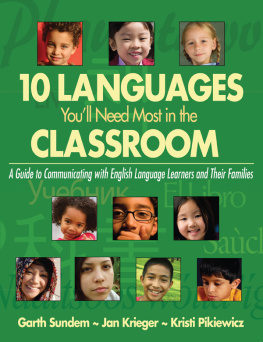
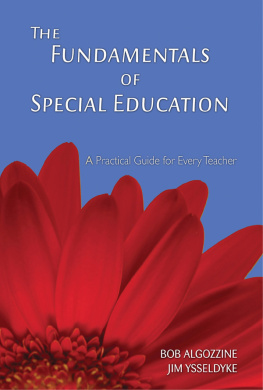
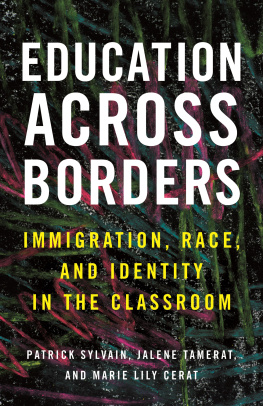
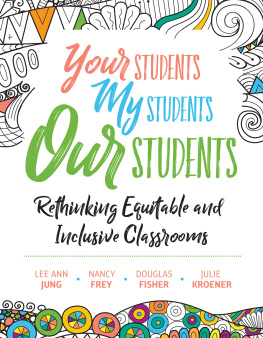
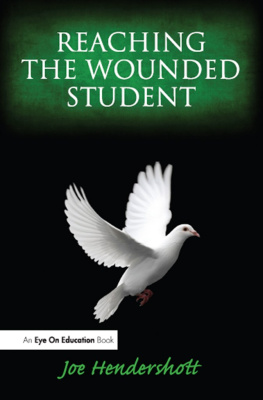
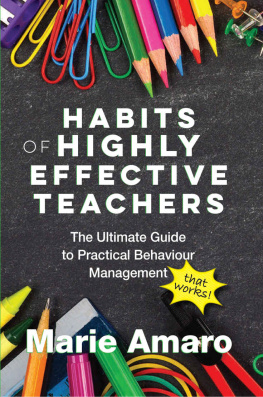

 The paper used in this publication meets the minimum requirements of American National Standard for Information SciencesPermanence of Paper for Printed Library Materials, ANSI/NISO Z39.481992.
The paper used in this publication meets the minimum requirements of American National Standard for Information SciencesPermanence of Paper for Printed Library Materials, ANSI/NISO Z39.481992.